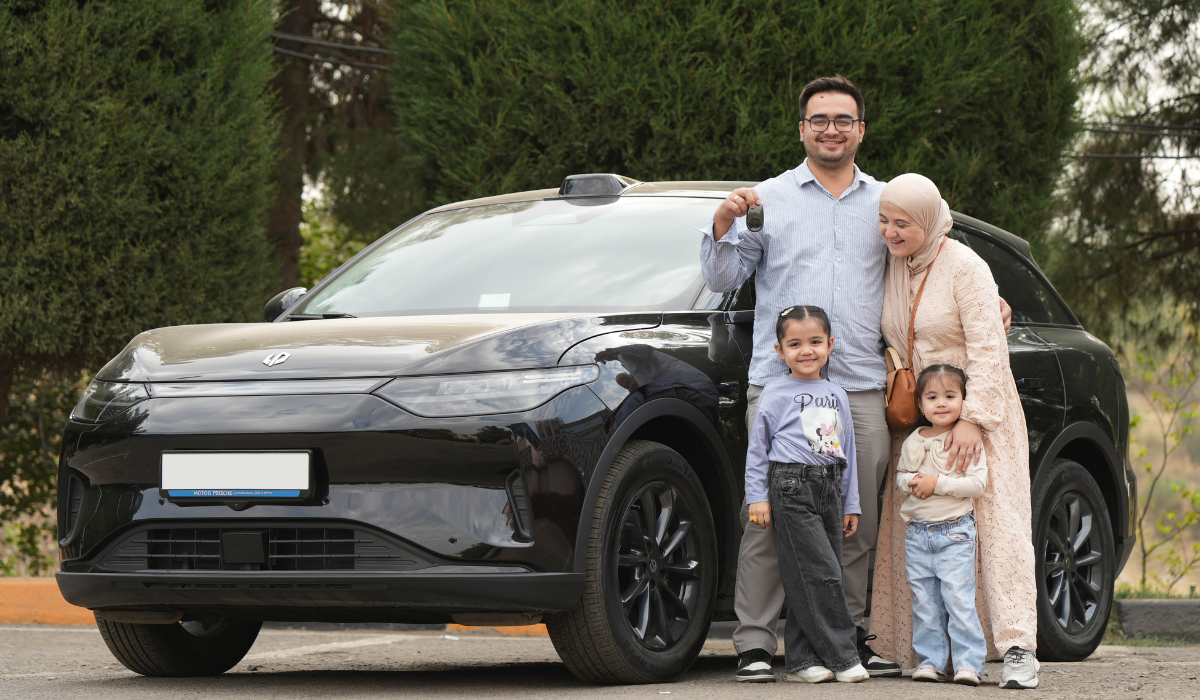What Is Guarantor Car Finance?
Guarantor car finance is a type of loan where a second person, called the guarantor, agrees to take responsibility for the repayments if the borrower fails to pay. This setup gives lenders extra confidence and allows borrowers with poor or limited credit to access finance they might otherwise be declined for. It’s like a phone-a-friend feature added onto your car finance - a convenient safety net should things go awry, some might say.
The finance agreement itself is typically structured as Hire Purchase (HP) or Personal Contract Purchase (PCP). The borrower still uses the vehicle as usual, but the guarantor is effectively backing the loan behind the scenes. Speaking of which, if you want more information on the difference between HP and PCP agreements, check out our blog.
Just a disclaimer - Ayan, at this time, does not offer clients the ability to provide a guarantor for their car finance.

Why Would Someone Need a Guarantor?
Not everyone qualifies for car finance on their own. You may need a guarantor if:
- You’re under 21 or a first-time borrower with no credit history
- You’ve had CCJs, defaults, or missed payments in the past
- Your income doesn’t meet the lender’s minimum threshold
- You're currently in part-time work or self-employed without a strong financial record
In these cases, a guarantor helps reduce the lender’s risk and makes approval more likely. Technically, the guarantor themselves don’t actually benefit from being a guarantor. Unless they count seeing the debtor get a loan as a benefit, in which case it’s a win-win situation. Regardless, you’ll likely need a good friend who’s just a little more financially inclined than you… or you can nag ur parents.

Who Can Be a Guarantor?
This will likely change depending on the finance company, but most of the requirements will be similar. Not just anyone qualifies. A suitable guarantor usually needs to be 21 or older, have a strong credit history (no recent defaults or missed payments), and be a UK resident with a steady income. Basically, someone who makes lenders feel confident won’t ghost them if things go sideways.
There’s one important catch: a guarantor can’t be financially linked to you, so a spouse or joint account holder is typically a no-go. However, parents, siblings, close friends, or even employers are commonly accepted, as long as they meet the financial criteria. Some lenders may even prefer a homeowner or someone with long-term stability, as it gives them more reassurance.
A bit of unsolicited advice, be careful who you choose to be your guarantor. Not only should they be reliable and actually in the position to help you should you need it, but in the case you do default, your relationship with them could strain. If your guarantor is your employer, the morning after a missed payment could be really awkward.
Being a guarantor is a serious commitment, so make sure whoever you ask understands the role. They’ll be legally responsible for stepping in if you can’t make payments, so again, it’s not just a signature; it’s a financial safety net.

What Are the Risks for the Guarantor?
Being a guarantor might sound like a simple favour, but it’s actually a serious legal commitment. If the borrower misses a payment, even once, the guarantor could be expected to step in and cover it. That could mean taking on full monthly repayments, late fees, or even paying off the entire outstanding balance if things go south and the car gets repossessed.
And it doesn’t stop there… if the guarantor fails to make those payments, it could lead to damage to their credit score, collection efforts, or even legal action. Lenders won’t care who caused the problem; they'll go after whoever is legally responsible.
So if there are any future guarantors reading this, it goes without saying you should similarly, if not exceedingly, be careful who you choose to be a guarantor for.

Benefits of Using a Guarantor
For the borrower, the perks are pretty straightforward. Having a guarantor on your side can boost your chances of approval, especially if you’ve got little or no credit history, or a few bumps in the road. You may also get access to better pricing than you would from subprime or payday lenders. Over time, making regular payments can help build or repair your credit score, opening doors to more financial options in the future. Best of all? You can get on the road sooner, even if your credit score isn’t ready to go full throttle just yet.
For the guarantor, it’s a way to support someone without handing over a lump sum of cash. You’re not paying anything up front, you’re just there as a backup if needed, and if everything goes smooth sailing, . But let’s be clear: this isn’t just a friendly signature. It's a serious commitment, and should only be made after considering the financial risks and making sure you’re comfortable stepping in if things go wrong. A good rule of thumb? Only agree if you could afford to make the repayments without it causing strain.
.png)
Alternatives to Guarantor Car Finance
While guarantor finance can be a lifeline, it’s not the only option. Alternatives include:
- Joint car finance (co-applicant owns the car with you)
- Car leasing for drivers with poor credit, until you build your credit score up. You can read our blog on ways to build your credit score the Halal way, for more info on this.
- Saving for a larger deposit to reduce the loan amount

Conclusion
Guarantor car finance is a helpful route for many people shut out of traditional lending, but it’s not without risk. If you're struggling to get approved, having someone trustworthy in your corner can open the door to car ownership and build your credit for the future.








.svg)


.png)
.png)

.png)







